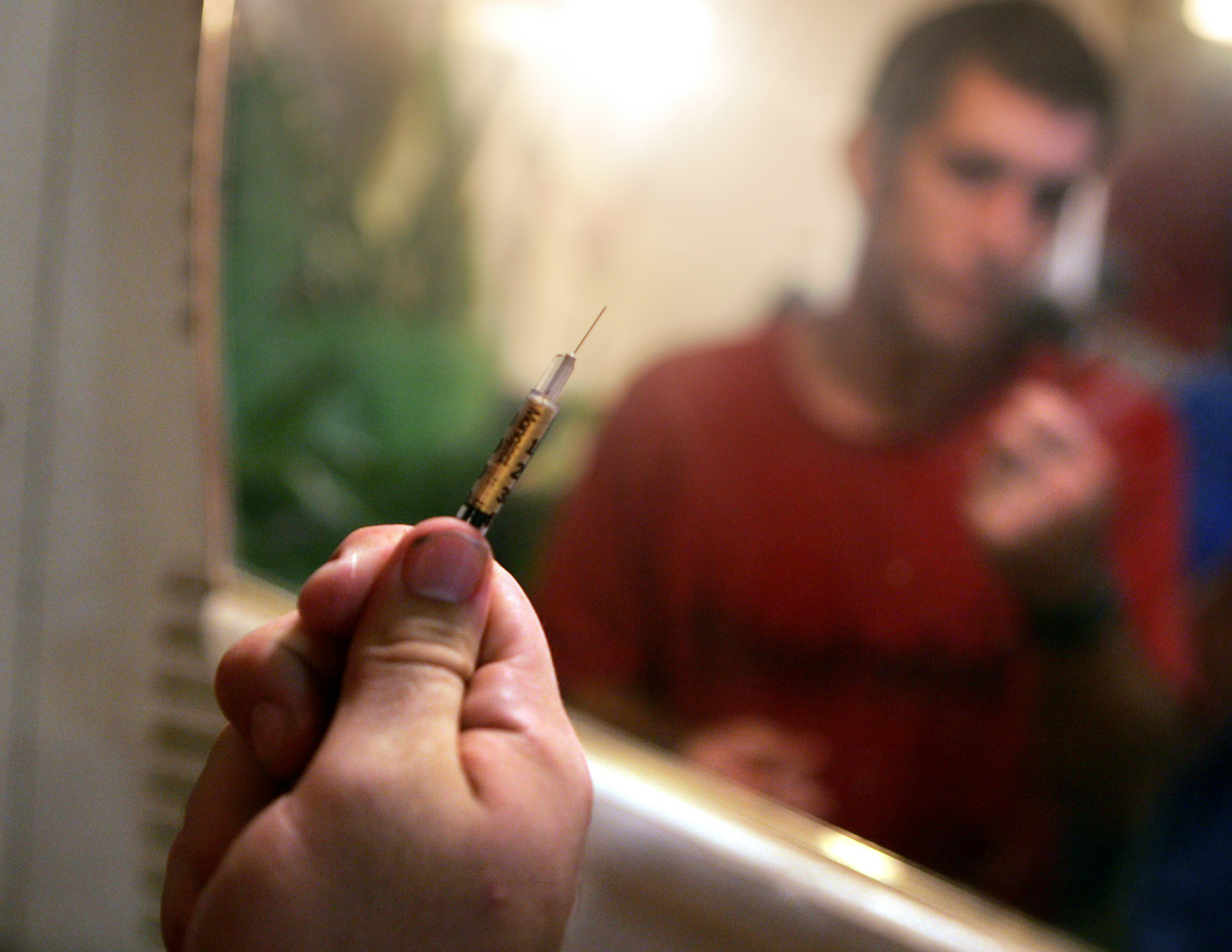How the heroin epidemic finally changed people's minds about drug abuse
Once the problem became more widespread, society became a lot more forgiving


A free daily email with the biggest news stories of the day – and the best features from TheWeek.com
You are now subscribed
Your newsletter sign-up was successful
You can discern the priorities of a society by the way it treats different people with the same problems. Consider two different forms of cocaine, crack and powder. The first was associated mostly with poor minorities, while the latter with rich bankers. Hence, there used to be a 100-fold disparity in the amount of each drug needed to trigger a mandatory minimum sentence — five grams of crack versus 500 grams of powder — despite the fact that they are pretty much the same. (The discrepancy has since been reduced to 18 to one.)
That same evolution has been happening with heroin. Once considered a drug of the despised underclass, heroin has skyrocketed in popularity along with the use of opioid pills — only this time, a great many relatively affluent whites are becoming addicted.
As a great report from the Marshall Project shows, suddenly people's attitudes have changed 180 degrees. Now addicts are people deserving of sympathy and treatment, instead of malcontents that should be locked in prison for years and years. It's stone-cold hypocrisy, but this change in attitude is also long overdue. Instead of using the criminal justice system to punish addicts for being bad people, it ought to be used to help them quit — and not only heroin.
The Week
Escape your echo chamber. Get the facts behind the news, plus analysis from multiple perspectives.

Sign up for The Week's Free Newsletters
From our morning news briefing to a weekly Good News Newsletter, get the best of The Week delivered directly to your inbox.
From our morning news briefing to a weekly Good News Newsletter, get the best of The Week delivered directly to your inbox.
The criminal justice system operates in a wildly haphazard fashion when it comes to drugs. The great majority of the time, people use in peace, but every once in a while, they get caught and punished viciously. Even for people under direct supervision of the courts and forbidden from using drugs (those on probation, for example), often get several slaps on the wrist before going back to prison for months or years.
Obviously, this kind of behavior doesn't make rational sense. Even if there is only a slim chance of being caught, if you use for long enough the punishment will happen eventually. Some people conclude that means addicts are beyond reason, and give up.
However, crime policy experts argue that addicts are a lot more amenable to behavior modification when it is implemented properly. As Mark Kleiman demonstrates in his book When Brute Force Fails, what makes a criminal deterrent effective is if it is swift and certain. The harshness of the punishment does matter, but to a much smaller degree. When reducing crime, it is far better to have a 100 percent chance of catching a criminal and a two-year sentence instead of a 60 percent chance and a 20-year one.
As Keith Humphreys writes, programs like 24/7 Sobriety in South Dakota have implemented this approach with people on probation for drunk driving — and with remarkable results:
A free daily email with the biggest news stories of the day – and the best features from TheWeek.com
Every morning and evening, for an average of five months, they visit a police facility to take a breathalyzer test. Unlike most consequences imposed by the criminal justice system, the penalties for noncompliance are swift, certain, and modest. Drinking results in mandatory arrest, with a night or two in jail as the typical penalty. The results have been stunning. Since 2005, the program has administered more than seven million breathalyzer tests to over 30,000 participants. Offenders have both showed up and passed the test at a rate of over 99 percent. [Wall Street Journal]
Of course, such an approach wouldn't necessarily be appropriate for every drug. Heroin addiction is likely much better treated with buprenorphine rather than by quitting cold turkey, for example. But the point is that drug addiction is one place where the coercion of the criminal justice system could not just be better used, but actually be part of a sound, humane policy that helps people quit abusing drugs.
As an aside, it's important to distinguish addiction policy from the policy towards basically harmless drugs with a small danger of abuse, like marijuana, or those with enormous medical research potential, like LSD or MDMA. Those ought to be much less stringently regulated.
At any rate, there appears to be a sea change occurring in the way people think about addiction and drugs. Even rural, conservative states like Kentucky are suddenly becoming amenable to a treatment-first view. With a bit of luck, soon federal policymakers will start waking up to their misallocation of criminal justice resources, and start emulating South Dakota's program.
Ryan Cooper is a national correspondent at TheWeek.com. His work has appeared in the Washington Monthly, The New Republic, and the Washington Post.
